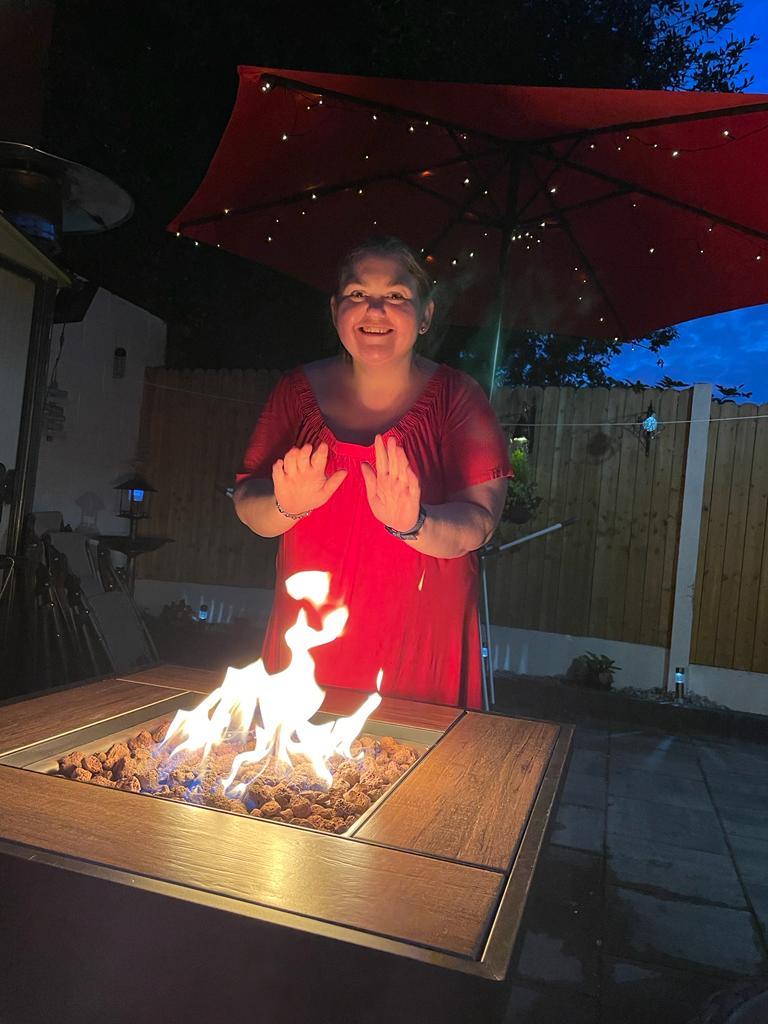Overcoming Premature Ovarian Insufficiency: One Woman's Story
- Niamh Connellan

- Aug 3
- 4 min read
Updated: Aug 23
When Niamh first heard the term "premature ovarian insufficiency," she felt a wave of confusion wash over her. At just 26 years old, she never imagined she would be facing such a diagnosis. The news hit her hard, but it also ignited a fire within her to learn, adapt, and ultimately overcome the challenges ahead. This is her story of resilience, hope, and empowerment.
Niamh’s journey began with a series of unexplained symptoms. She experienced no periods, hot flashes, and mood swings that seemed out of place for her age. After several visits to her doctor, she was referred to a specialist who confirmed her worst fears. Premature ovarian insufficiency, or POI, meant that her ovaries were not functioning properly, leading to early menopause.
The diagnosis was overwhelming. Niamh felt a mix of emotions, from fear to sadness. She worried about her future, her dreams of having children, and how this would affect her relationships. However, she quickly realized that she had a choice. She could either let this diagnosis define her or take control of her health and happiness.
One of the first steps Niamh took was to educate herself about POI. She spent hours researching online, reading articles, and joining support groups. She learned that POI affects about 1% of women under 40 and can be caused by various factors, including genetics, autoimmune disorders, and certain medical treatments. Understanding her condition helped Sarah feel less isolated and more empowered.
Niamh also sought out a healthcare team that understood her needs. She found a compassionate endocrinologist who specialized in reproductive health. Together, they discussed treatment options, including hormone replacement therapy (HRT) and lifestyle changes. Niamh learned that HRT could help alleviate some of her symptoms and protect her long-term health.
In addition to medical treatment, Niamh focused on her overall well-being. She began to prioritize self-care, incorporating regular exercise, a balanced diet, and mindfulness practices into her daily routine. She discovered that counselling and meditation helped her manage stress and improve her mood.
Niamh also reached out to other women who had experienced POI. She found comfort in sharing her story and hearing theirs. These connections provided her with a sense of community and support. They exchanged tips on coping strategies, shared resources, and celebrated each other's victories, no matter how small.
As Niamh navigated her journey, she faced challenges along the way. There were days when she felt defeated, overwhelmed by the emotional toll of her diagnosis. However, she learned to lean on her support system. Friends and family rallied around her, offering encouragement and understanding. They reminded her that she was not alone in this fight.
One of the most significant turning points for Niamh was when she decided to explore her options for starting a family. Although POI posed challenges, she learned about assisted reproductive technologies, such as egg donation and in vitro fertilization (IVF). This knowledge opened up new possibilities for her future.
Niamh also became an advocate for herself and others facing similar challenges. She started a blog to share her experiences and raise awareness about POI. Through her writing, she hoped to inspire others to seek help, educate themselves, and find strength in their journeys.
Her blog quickly gained traction, attracting readers from all over the world. Women reached out to share their stories, and Niamh found joy in connecting with them. She realized that her experience could help others feel less alone and more empowered.
As time went on, Niamh’s perspective shifted. While she still faced challenges, she began to see her diagnosis as a part of her story, not the whole narrative. She learned to celebrate her resilience and the strength she had discovered within herself.
Niamh’s journey is a testament to the power of hope and determination. She learned that while life may not always go as planned, it is possible to find joy and purpose in unexpected places.
In the end, Niamh’s story is not just about overcoming premature ovarian insufficiency. It is about embracing life, seeking support, and finding strength in vulnerability. She hopes that by sharing her journey, she can inspire others to take charge of their health and well-being.
As Niamh continues to navigate her path, she remains committed to raising awareness about POI. She believes that by sharing her story, she can help break the stigma surrounding women's health issues.
Niamh’s journey is ongoing, but she faces the future with hope and determination. She knows that while challenges may arise, she has the strength to overcome them.
In sharing her story, Niamh invites others to join her on this journey of empowerment and resilience. Together, they can create a community of support, understanding, and hope for all women facing similar challenges.

Niamh’s story is a reminder that we are not defined by our diagnoses. Instead, we can choose to rise above them, embracing our strength and resilience.
As we reflect on niamh’s journey, let us remember the importance of community, education, and self-advocacy. Together, we can support one another in our journeys, celebrating our victories and finding strength in our struggles.
In the face of adversity, we can choose to thrive, finding joy and purpose in every step of our journey.





Comments